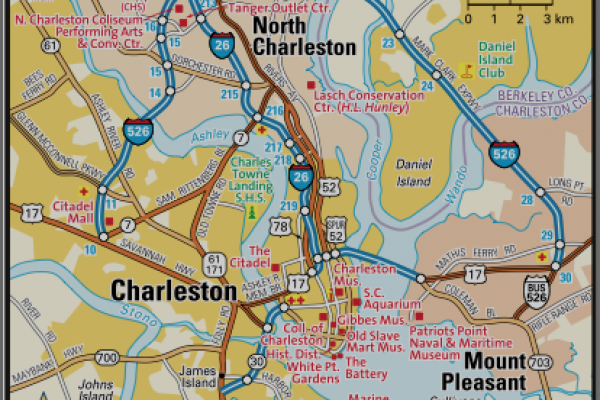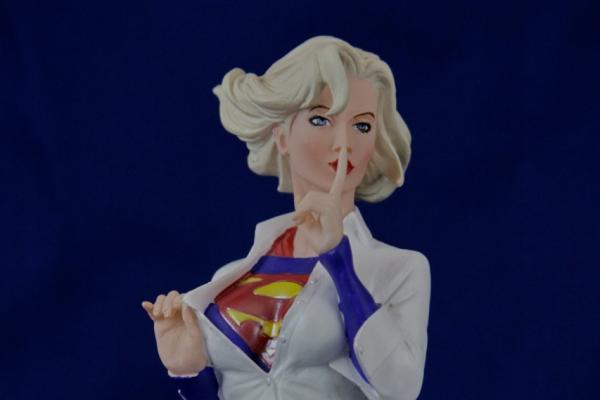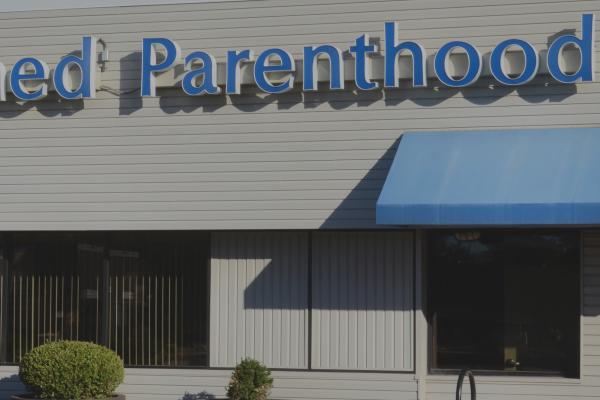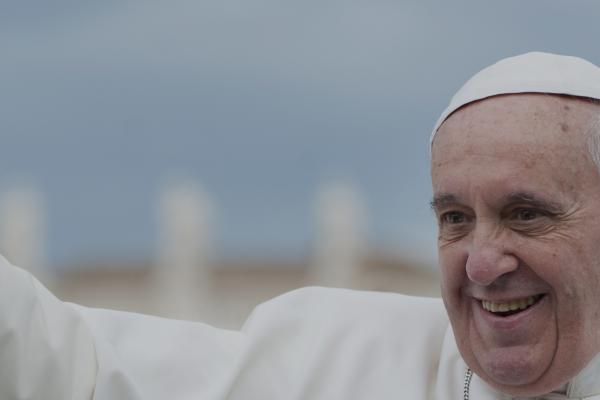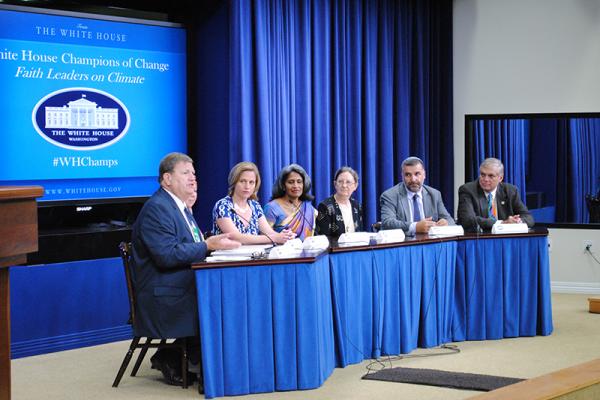Our cultural pattern of becoming scandalized by the other side isn’t helping. Whichever side we are on, becoming the morality police is only making the scandal worse as we scapegoat and talk past each other. This pattern gets us stuck in a scandal of unhealthy righteous indignation over and against our opponents.
The alternative to getting stuck in a scandal isn’t to avoid scandals, but rather to go through them. As we go through them, we might just discover ourselves becoming un-scandalized as we see that the other is actually motivated by a good goal. In acknowledging the other’s good goal, we begin to see them as human and not the evil demons our minds have made them out to be.
For the past thirty years my family has vacationed in Charleston, S.C. I spent eight years living, going to school, and working in Charleston; I met my wife there, got married there, and it is still a place we count as home when people ask.
The shootings at Mother Emanuel Church in Charleston let loose a flood of memories long shoved into the recesses of my mind. One of these was when I was the youth director for a large white affluent congregation, and the youth groups at Mother Emanuel and my church performed a joint Youth Sunday service in the late 90s.
Driving from Asheville, N.C, to Charleston shortly after the shootings, my heart grew heavy as I wondered what to do when we arrived. Nothing I envisioned captured the heaviness I felt; the need to be useful. I decided to sleep on it.
Even before it hit comic store shelves in May, Marvel’s all-female series A-Force started picking up attention — most of it well-deserved. Co-written by Marguerite Bennett and G. Willow Wilson, whose other credits include a series starring a Muslim teenage girl (see "Real Life, With Superpowers," Sojourners, August 2014),A-Force is Marvel’s new, lady-led Avengers team, who patrol and protect the island community of Arcadia.
Or as New Yorker staff writer Jill Lepore said in a less-than-complimentary essay, "A-Force is a race of lady Avengers, led by She-Hulk, who come from a ‘feminist paradise,’ but I don’t know what that could possibly mean, because they all look like porn stars."
Lepore’s argument is that for all its positing as the latest in a series of progressive moves by Marvel, A-Force’sgender representation leaves much to be desired. The series features heroines who are, in several cases, female versions of existing male superheroes, rather than their own independent characters.
"Marvel is trying very hard to deal with the fact that its superheroes are mainly men and just turning them into women seemed as good a plan as any," argues Lepore, who recently wrote a book on Wonder Woman’s feminist origins.
It’s not often words escape us. But in the aftermath of the now viral recording(s) raising concerns over whether Planned Parenthood seeks profit from aborted fetal tissue — and the crassness with which its representative discusses how to accomplish it without “crushing” the tissue/organs — that’s where we were left: with no words. We confess to being at a complete loss of what to say in the face of humanity’s brokenness.
Beyond the ethical questions of how an organization receives payment for tissue sales or the debates around the potential benefits of the patients’ donations of fetal tissue, the videos are an in-your-face reminder of our culture’s blatant disrespect for life.
That disregard is not unique in our society, of course. Journalism: “If it bleeds, it leads.” Medicine: “There’s nothing more to be done. She’s a vegetable.” Justice system: “He’s gonna fry.” War: “Light ‘em up.” Uncomfortable questions about life and death and ethics are best papered over with emotionless cliché, obviously.
As a society and as individuals, when we fail to recognize the imago dei in others, we trend further away from our uniquely human capacity to empathize and closer to isolated, analytical, and almost robotic assessments of value.
A federal grand jury in South Carolina indicted Dylann Roof today on 33 counts, including hate crime charges.
In a statement at the Department of Justice, Attorney General Loretta Lynch noted that Roof targeted not only black people, but black people inside a church.
"To carry out these twin goals of fanning racial flames and exacting revenge, Roof further decided to seek out and murder African-Americans because of their race," said Lynch.
Rob Bell is on the move. In his “Everything is Spiritual” tour, which makes its way through the Washington, D.C., metro this evening, he is focusing on the connections between science and spirituality and how we can sit within the reality of our ever-expanding universe. Sojourners’ Catherine Woodiwiss spoke with the author and speaker to talk spirituality, the “nones,” Oprah, science, and surfing.
This interview has been edited for length and clarity.
I won’t pile on Dr. Nucatola. The video seems pretty disastrous for her and for Planned Parenthood.
I will pile on us. Us? Yes, we the people of the United States of America.
We are the ones who have created a society in which we have become utterly dependent on abortion.
We are the ones who choose every year to turn to abortion clinics and drugs to end one out of five healthy pregnancies.
We are the ones who keep having sex outside of committed and marital relationships — and thus risking an unwelcome pregnancy.
We are the ones who keep having sex without using contraceptives, even when they are readily available.
We are the ones who fight over the politics of abortion without doing much to reduce demand for abortion.
Recently I experienced a wave of frustration related to my student loan debt. This happens from time to time, and really anything can set it off. Debt is stressful, as most of us are aware. Before I dive in, though, I’ve got to say that I’m more fortunate than many; I’ve been able to steadily pay on my debt for a while now. It’s still sizable enough to haunt me, but at least it isn’t a Poltergeist-style terror. That’s not insignificant.
Nothing so far is unique. Thousands of former students are dealing with the exact same thing, though in varying levels of distress or ease. What makes it slightly different is what degree I went into debt for.
I received a Master of Theological Studies degree from Vanderbilt Divinity School. So we’re talking about 1) a graduate degree, as opposed to a bachelor’s, which is widely regarded as necessary in this country to participate in the job market; and 2) a professional degree, meant to lead to practical ministerial work for the social good.
Growing conservative disaffection with Pope Francis appears to be taking a toll on his once teflon-grade popularity in the U.S., with a new Gallup poll showing the pontiff’s favorability rating among all Americans dropping to 59 percent from a 76 percent peak early last year.
Among conservatives the dropoff has been especially sharp: just 45 percent view Francis favorably today as opposed to 72 percent a year ago.
From a zero-waste synagogue to global development work after natural disasters, environmental projects by faith leaders are being hailed by the Obama administration as examples of exemplary leadership on climate change.
Environmental Protection Agency Administrator Gina McCarthy highlighted initiatives by a dozen leaders from a range of faiths, who were recognized July 20 in Washington, D.C., as “Champions of Change” for their environmental initiatives.
“As faith leaders, no voice is really more important than yours in this,” said McCarthy.

